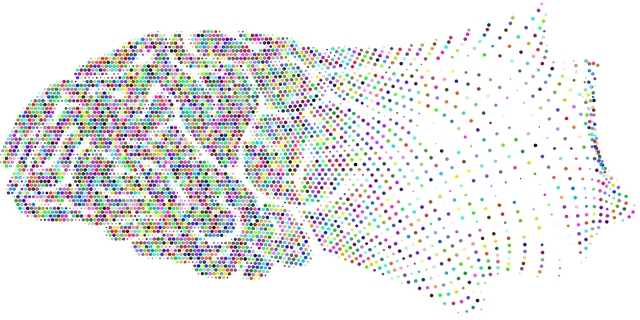Mental health issues in young children, including anxiety, depression, and emerging psychosis, are increasing. Early identification is crucial, with tailored therapies like compassion cultivation, mindfulness meditation, cognitive-behavioral therapy (CBT), and family-focused approaches being effective. These strategies reduce stigma, enhance therapeutic outcomes, and promote resilience through self-care routines. The Mental Wellness Podcast Series educates parents on monitoring emotional well-being, conflict resolution, and mind over matter principles. By supporting parents with guidance, communication strategies, mental wellness journaling, and mood management techniques, professionals can improve therapy outcomes for young children experiencing psychosis.
Mental wellness promotion among young children is a growing priority, given the rising prevalence of mental health issues. This article explores critical aspects of fostering resilience and well-being in children, focusing on early identification and intervention strategies. We delve into therapeutic approaches tailored for psychosis in kids, emphasizing the pivotal role of supporting parents and caregivers in this process. By understanding these elements, we can enhance support systems and improve outcomes for young minds facing mental health challenges, particularly psychosis.
- Understanding Mental Health Issues in Young Children
- Early Intervention and Prevention Strategies
- Therapeutic Approaches for Psychosis in Kids
- Supporting Parents and Caregivers: A Crucial Component of Wellness Promotion
Understanding Mental Health Issues in Young Children

Mental health issues among young children are becoming an increasingly recognized concern, with conditions such as anxiety, depression, and even psychosis affecting a significant number of kids today. Early identification is crucial for effective intervention and treatment. Many mental health disorders can be effectively managed through therapy tailored to this age group. One promising approach is incorporating compassion cultivation practices into therapeutic settings, which helps young clients develop empathy and reduce negative emotions.
Public awareness campaigns play a vital role in destigmatizing mental illness and encouraging parents and caregivers to seek help early on. Additionally, mindfulness meditation has gained traction as a complementary tool for managing stress and improving emotional regulation in children. By combining these strategies, therapists can foster a nurturing environment, enhancing the effectiveness of therapy for young children struggling with psychosis or other mental health challenges.
Early Intervention and Prevention Strategies

Early intervention and prevention are crucial aspects of promoting mental wellness, especially when it comes to young children. Recognizing the signs of emerging mental health issues in childhood can significantly impact long-term outcomes. Therapy for young children experiencing psychosis is one such example where early detection allows for effective treatment. By implementing tailored interventions, professionals can support these children and their families, helping them navigate and manage symptoms before they escalate.
The Mental Wellness Podcast Series Production often highlights the importance of education and awareness during this stage. Through engaging content and expert insights, it encourages parents and caregivers to be vigilant about their children’s emotional well-being. Additionally, teaching Conflict Resolution Techniques and fostering Mind Over Matter Principles from a young age can empower children to develop healthy coping mechanisms and build resilience against future mental health challenges.
Therapeutic Approaches for Psychosis in Kids

Psychosis in children is a complex condition that requires tailored therapeutic interventions. Early identification and intervention are crucial in managing psychotic symptoms and promoting positive outcomes. One effective approach is cognitive-behavioral therapy (CBT), which helps young individuals challenge negative thoughts, develop coping strategies, and improve their understanding of psychotic experiences. CBT combines evidence-based techniques with compassion cultivation practices to foster self-acceptance and reduce stigma associated with mental health issues.
Additionally, family-focused therapies have shown promise in supporting children with psychosis. These therapies engage parents and caregivers in the treatment process, teaching them effective communication strategies, stress reduction methods, and how to facilitate a supportive environment for their child’s recovery. Encouraging a consistent self-care routine development for better mental health is integral to these therapeutic approaches, promoting overall well-being and resilience in young patients navigating psychosis.
Supporting Parents and Caregivers: A Crucial Component of Wellness Promotion

Supporting parents and caregivers is a crucial component of mental wellness promotion, especially when addressing early signs of psychosis in young children. These individuals often bear a significant burden, as they must navigate their child’s complex emotional needs while managing their own stress and potential mental health challenges. Providing them with effective guidance and communication strategies can make a profound difference.
A mental wellness journaling exercise tailored for parents can offer a safe space to document their observations, concerns, and coping mechanisms. This practice fosters self-awareness and enables them to identify patterns in their child’s behavior and mood swings. Additionally, these journals can serve as a valuable tool during therapy sessions, facilitating open conversations about early psychotic symptoms and providing concrete examples for mental health professionals to work from. Meanwhile, mood management techniques taught to parents help them guide their children through emotional distress, promoting resilience and healthy coping strategies.
Promoting mental wellness in young children involves a multifaceted approach, from early intervention strategies to supportive care for parents. Understanding mental health issues and fostering therapeutic environments are key. Specifically, recognizing the signs of psychosis early on through tailored therapy can significantly impact a child’s long-term outlook. Moreover, empowering parents and caregivers with the necessary tools and knowledge is essential, as they play a crucial role in navigating this journey. By combining these strategies, we can create a supportive landscape that fosters resilience and overall mental wellness for children.











